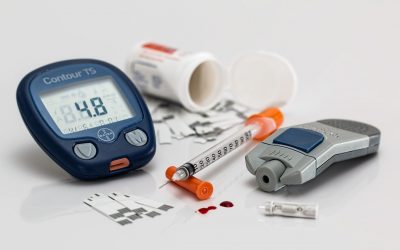Smoking increases your risk of coronary heart disease 2-3 times compared to non-smokers. This is increased by the number of cigarettes smoked each day, depth of inhalation and total number of years being a smoker.
The chemicals from smoking make the walls of your coronary arteries stickier, this increases the likelihood of fatty material sticking to them and beginning to clog them which can lead to a heart attack. This is otherwise known as atherosclerosis. This reduces blood supply and the amount of oxygen available throughout the body. Smoking also increases the stiffness of the blood vessels making it harder for them to expand and contract as needed and more likely to split.
Some of the harmful chemicals in cigarettes include:
Carbon monoxide- a poisonous gas that is breathed in when smoking. It prevents blood cells from carrying oxygen around your body. High levels of carbon monoxide increases your risk of heart and circulatory disease.
Tar – When breathed in, 70% stays in your lungs and damages them. Cigarettes labelled ‘light’, ‘mild’ or ‘low tar’ are deceptive (all cigarettes are bad for your health).
Nicotine- The addictive chemical. Increases your heart rate and blood pressure which damages your arteries and your heart.
Some immediate and long term effects of smoking:
Immediate affects-
Increased heart rate and blood pressure
Vasospasm (narrowing) of the coronary arteries
Reduction in the oxygen carrying capacity of the blood
The affects increase the hearts demands for oxygen but decrease it’s supply
Long term effects:
Reduces ‘good’ cholesterol, HDL.
Damages the delicate lining of the coronary arteries
Increases stickiness of platelets
Menopause occurs on average 2-3 years
Now I am fully aware that the majority of people who smoke probably know these facts already. However, I want to re-emphasise the point that smoking cigarettes accounts for roughly one fifth of all deaths from heart disease. Smokers have a 70 percent higher death rate from coronary heart disease than non-smokers.
Quitting – The single best thing you can do for your health. Even after smoking for years, quitting reduces the risk of circulatory and heart disease.
20 minutes after you quit smoking, your heart rate and blood pressure return to normal.
After 2–3 days your sense of smell and taste improve.
After 2–12 weeks exercise becomes easier and your breathing improves.
After 1 year your risk of having a heart attack is half that of a smoker.
There is plenty of help available for you. Make an appointment with your GP or go to your local pharmacy. They will be able to advise you on the best way to quit and suggest medication or nicotine replacement therapy.
Also, pay attention to situations that make you want to smoke. If you always smoke when you’re stressed, tired or drinking alcohol, plan ahead for these moments so you develop new ways to cope.









